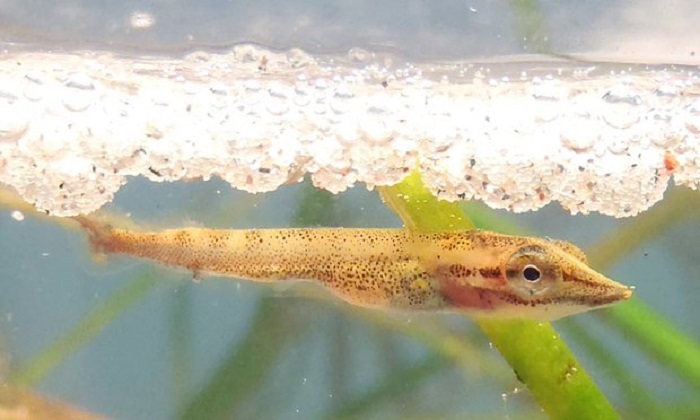Microplastics killing fish before they reach reproductive age, study finds

The growing problem of microplastics – tiny particles of polymer-type materials from modern industry – has been thought for several years to be a peril for fish, but the study published on Thursday is the first to prove the damage in trials.
Microplastics are near-indestructible in natural environments. They enter the oceans through litter, when waste such as plastic bags, packaging and other convenience materials are discarded. Vast amounts of these end up in the sea, through inadequate waste disposal systems and sewage outfall.
Another growing source is microbeads, tiny particles of hard plastics that are used in cosmetics, for instance as an abrasive in modern skin cleaners. These easily enter waterways as they are washed off as they are used, flushed down drains and forgotten, but can last for decades in our oceans.
The impact of these materials has been hard to measure, despite being a growing source of concern. Small particles of plastics have been found in seabirds, fish and whales, which swallow the materials but cannot digest them, leading to a build-up in their digestive tracts.
For the first time, scientists have demonstrated that fish exposed to such materials during their development show stunted growth and increased mortality rates, as well as changed behaviour that could endanger their survival.
Samples of perch, still in their larval state, were shown not only to take in the plastics, but to prefer them to their real food. Larval perch with access to microplastic particles ate only the plastics, ignoring their natural food source of plankton.
The study, published in Science on Thursday, found that the fish born into an environment rich in microplastics – defined as tiny pieces of less than 5mm in size – had reduced rates of hatching and development to maturity.
The perch studied also ignored the chemical signals that would normally warn them of the presence of predators, the researchers found.
These particles are now found in abundance across the world’s oceans, and are often common in shallow coastal areas, where they wash in from waste dumps and sewerage systems.















































